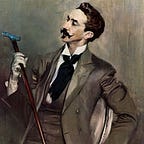Constance Debré: the Nouveau Enfant Terrible of French Literature?
I picked up a copy of Constance Debré’s Nom recently, after having heard that independent press Semiotext(e) had recently translated some of her earlier works. Semiotext(e) has a reputation for introducing Anglophone readers to intellectually stimulating theoretical texts from Europe and Latin America, so I assumed that Debré’s work would fit well the trendy genre of autofiction with a sprinkle of academic commentary, much like works by Annie Ernaux or Didier Eribon. My assumption was not totally off: Nom is about Debré’s life. There is, however, not an interest in connecting her life to neat social theory. This is because in her case that is quite challenging; her admiration for Gilles Deleuze (as shown by the book’s introductory quote) highlights that Debré is into messiness, entanglements, and complexity rather than linear narratives accompanied by metanarratives. Born into a notorious wealthy family but raised by two people with hippie-like inclinations — a fashionable Parisian lady and a documentarian with experience in East Asia — Debré got to know both the benefits of aristocratic origins and the lows of financial insecurity. The result of such a wide range of lived experiences is a work that evokes the rebelliousness of the Baron de Lahontan and Arthur Rimbaud for the twenty-first century.
Nom primarily looks at the social perks of having a prestigious name, a name associated with powerful people. Debré despises this; she uses her name to denounce the literary establishment, the performative and arrogant behavior of the bourgeoisie, the assumption that family relations are the most sacred of all, and the decadent consumerism of modern society. Once a successful lawyer, she has abandoned that career to write unorthodox prose that denounces everything and everybody. Nonetheless, not all is bleak — her love for a number of women, which she tries hard to repress, ends up changing her life for the better a number of times. And alongside traumatic stories of her parents it is possible to read tender anecdotes that show that they meant a lot to her. As much as Debré tries to come across as a twenty-first century Émile Cioran, her writing ends up redeeming life, in a manner that perhaps evokes Céline’s alleged anarchist Candide remake Voyage au bout de la nuit.
In the end, it is still unclear what to make of Debré’s project. On one hand, hearing a person complain about their privileged upbringing and their bohemian nomadic lifestyle can be quite insufferable. On the other, Debré’s prose is so passionate that it is hard to resist nodding as she boldly argues that literature and books are useless because they simply reinforce the values of the establishment. Perhaps an additional influence deserves a mention: Valeria Solanas, the American feminist whose SCUM Manifesto arguing for the elimination of men puzzles thinkers to this day. I doubt that Debré fully means that all family links ought to be broken, that everybody ought to be as individualistic as possible. But if it seems like she does, one can understand why. Resisting the allure of someone telling it as it is is quite hard.
